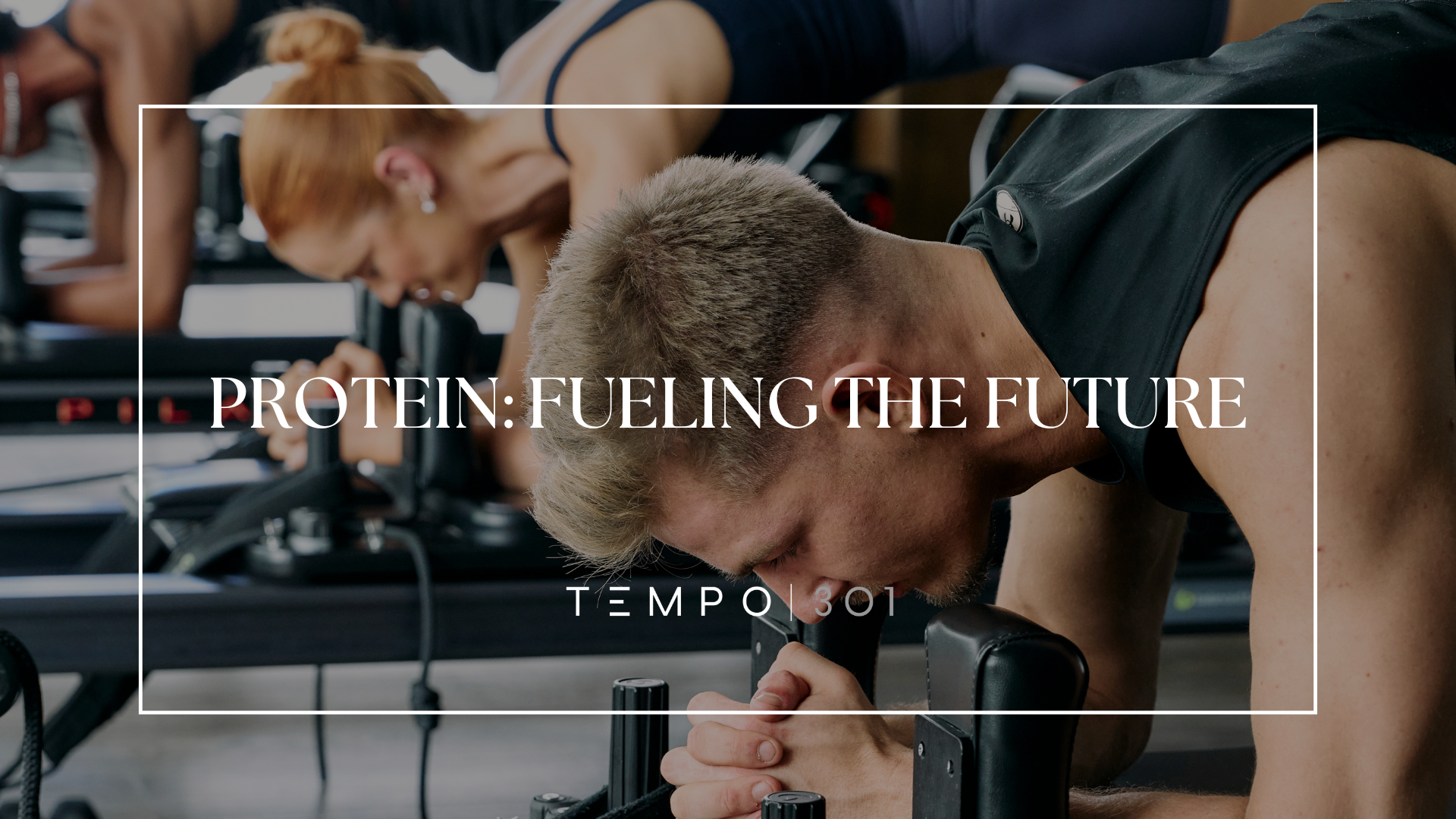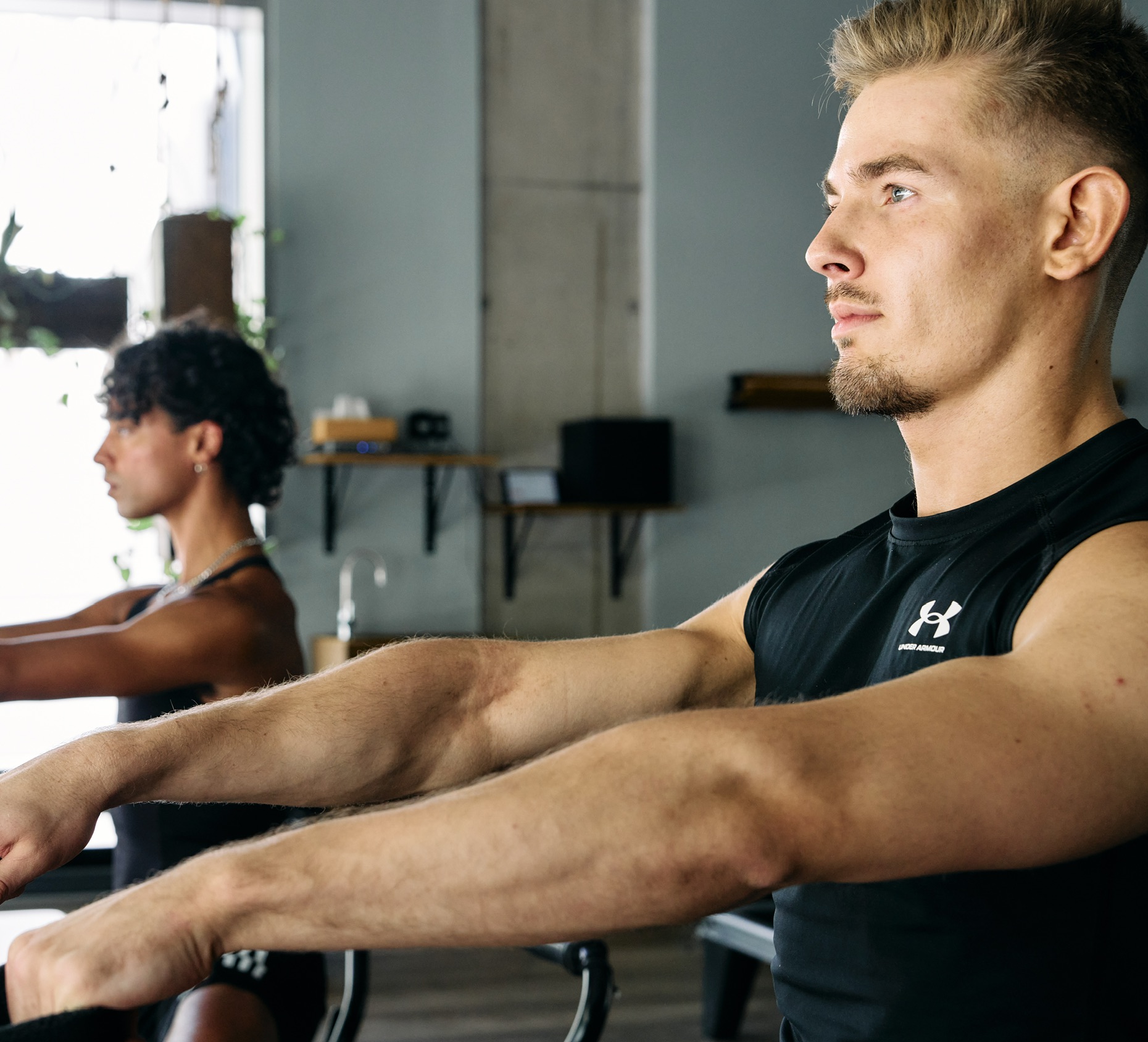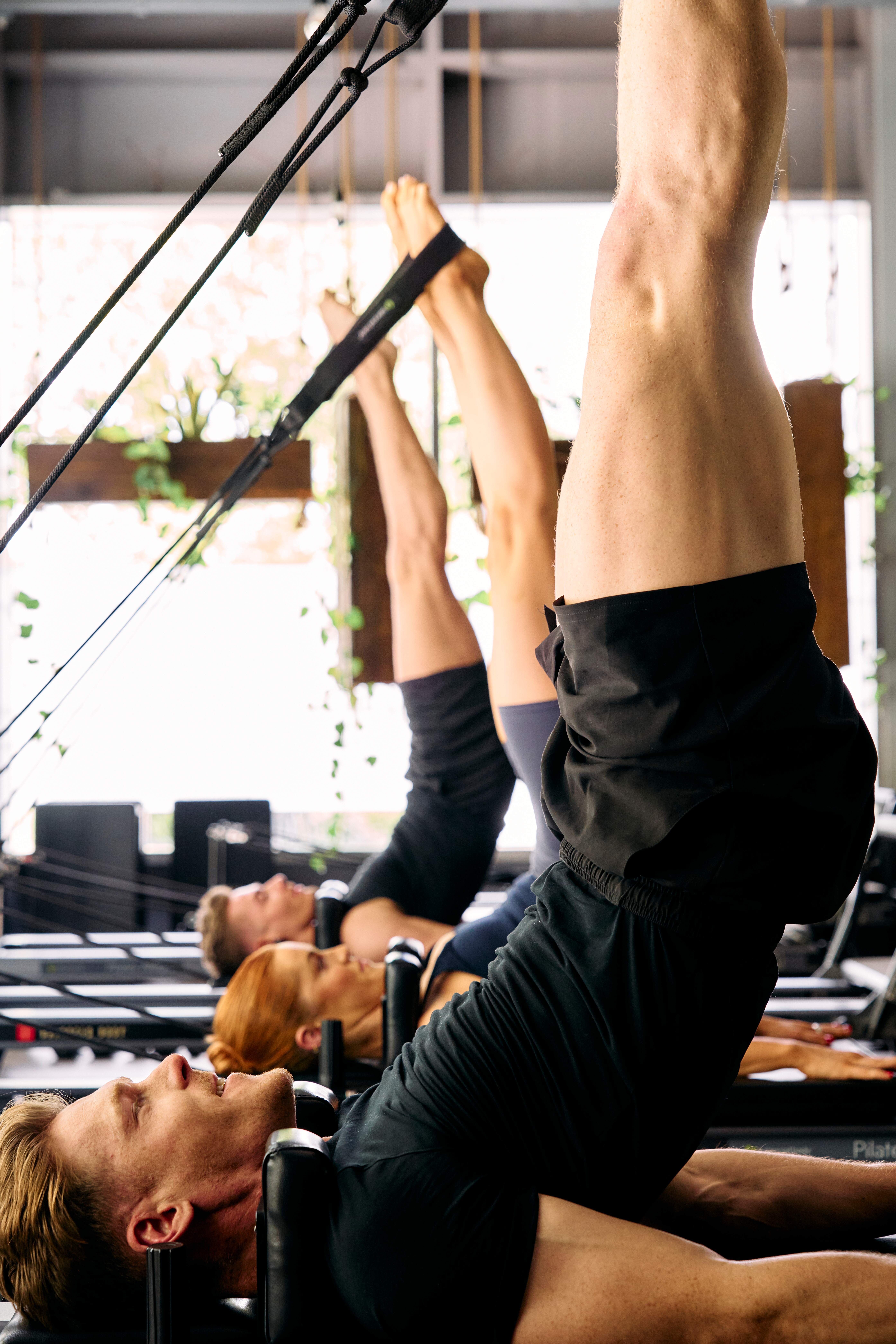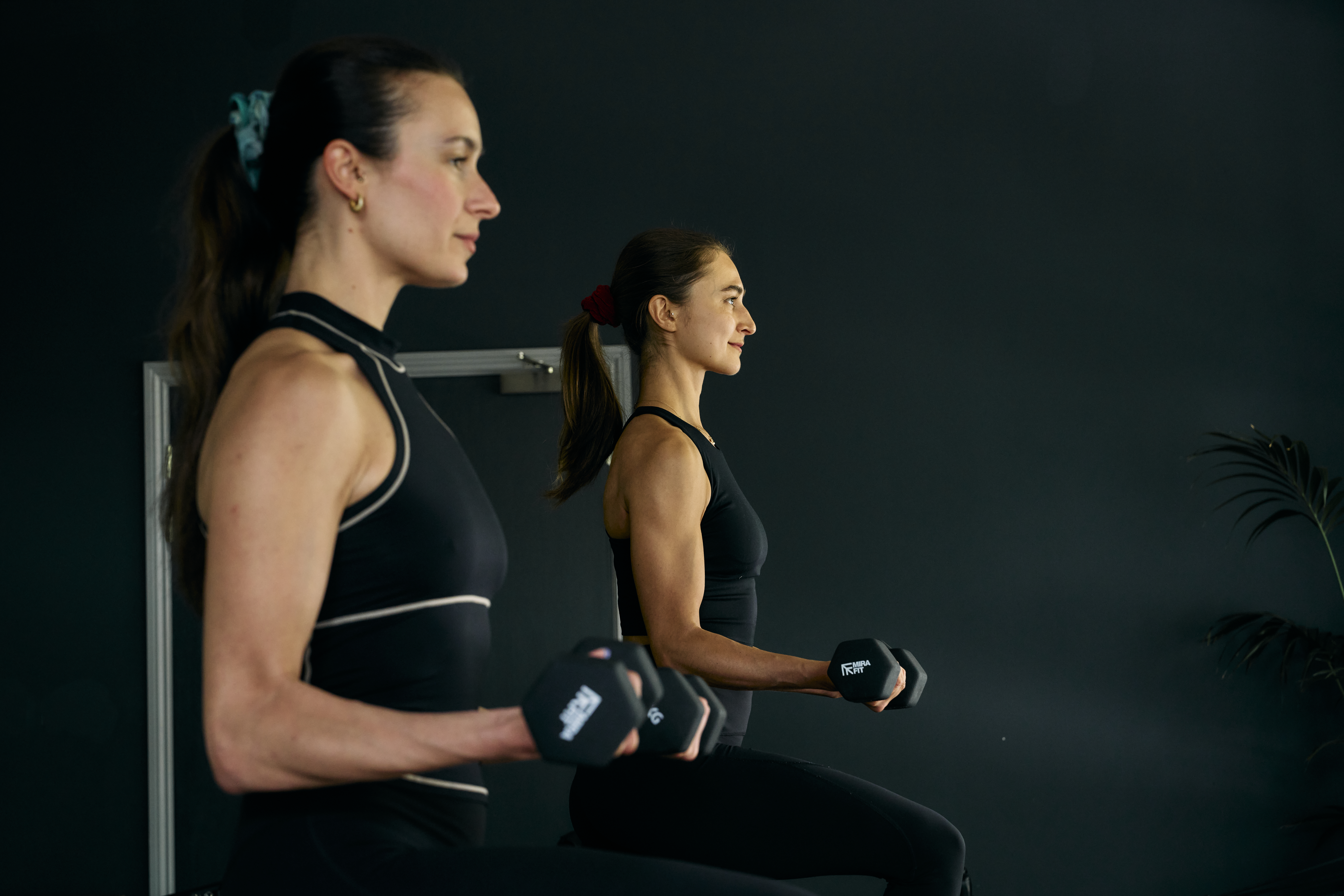When it comes to achieving your fitness goals, building strength, improving endurance, or simply feeling your best, protein plays a key role. It’s essential for muscle repair, recovery, and overall performance. But why is everyone obsessed with protein right now? Its ability to support muscle growth and recovery is the answer, especially when paired with a well-rounded fitness routine. Protein helps your muscles repair and grow after your workouts, making it a vital part of your journey towards a leaner, stronger physique. Let’s break it down.
Why Does Protein Matter for Your Workouts?
Protein is the building block of your muscles, and its importance in your fitness journey cannot be overstated! Here’s why:
Muscle Repair and Growth
Working out, especially during strength training or training in methods like Pilates, creates tiny tears in your muscle fibres. Protein then steps in to repair these tears, helping your muscles grow stronger and more resilient over time.
Improved AND Faster Recovery
Have you ever felt sore after a challenging class? Adequate protein intake can help reduce muscle soreness and speed up recovery so you’re ready to tackle your next class with energy and enthusiasm.
Sustained Energy
Protein helps stabilise your blood sugar levels, keeping you energised throughout your workout and preventing those mid-class energy crashes.
Body Composition
Protein supports fat loss while preserving lean muscle mass, which is key for achieving a toned, strong physique.
How to Build Lean Muscle with Protein and Pilates?
Pilates is often celebrated for its ability to improve flexibility and posture, but it’s also a powerful tool for building lean muscle. Unlike traditional weightlifting, Pilates focuses on controlled, precise movements that engage your muscles through their full range of motion. This approach not only strengthens your muscles but also creates long, lean lines without adding bulk. By incorporating resistance from equipment like the Reformer or your own body weight, Pilates challenges your muscles in a way that promotes endurance and tone.
Pairing your Pilates practice with the right protein intake gives your muscles the fuel they need to repair and grow, helping you achieve a lean, sculpted physique over time. At Tempo 301, our highly addictive classes use controlled resistance and carefully structured progressions to challenge your body in just the right way. This approach allows you to see lasting results while maintaining proper form and control—two key components in building lean muscle. We focus on sustainability, ensuring gradual progress without compromising technique, so your gains remain steady and injury-free. Try our 40-class package, valid for 12 months, for the most flexible and best value option to stay consistent, keep progressing, and build lean muscle sustainably with every class.
How Much Protein Do You Need?
The amount of protein you need depends on your fitness goals, activity level, and body weight; as a general guideline:
- Active Individuals: Aim for 1.4 to 2.0 grams of protein per kilogram of body weight per day (Journal of the International Society of Sports Nutrition)
- Strength Training Enthusiasts: If you’re focusing on building muscle, aim for the higher end of that range.
For example, if you weigh 68 kg and are regularly attending Pilates classes, you’ll want to consume around 95–110 grams of protein daily.
What Are the Best Sources of Protein?
Getting enough protein doesn’t have to be complicated. Here are some excellent sources to incorporate into your diet:
- Animal-Based: Chicken, turkey, fish, eggs, Greek yoghurt, and lean beef.
- Plant-Based: Lentils, chickpeas, tofu, tempeh, quinoa, and edamame.
Supplements: While whole foods are often the best source of protein, protein shakes and bars can be a useful option, especially post-workout when your muscles need quick nourishment. When choosing supplements, look for high-quality ingredients with minimal additives, artificial sweeteners, or unnecessary fillers. A simple whey, pea, or soy protein powder blended with natural ingredients can be a better choice than highly processed bars with excessive sugars or preservatives.
When Should You Eat Protein?
Timing your protein intake is just as important as how much you eat. While carbohydrates are your body’s go-to source for quick energy, especially during workouts, combining them with protein can really elevate your performance and recovery. Carbs provide the immediate fuel you need to power through your session, while protein helps sustain energy levels and kickstarts muscle repair during and after exercise. This balanced approach ensures your muscles have the nutrients they need to perform at their best and recover effectively, helping you build a strong, sculpted physique over time. Here’s a simple guide to optimising your protein intake:
- Pre-Workout: Have a snack 1–2 hours before your class to fuel your muscles. For example, a banana with a tablespoon of peanut butter or a small smoothie with fruit and protein powder.
- Post-Workout: Within 30–60 minutes of finishing your workout is optimum; aim for a meal or snack with a good balance of protein and carbs. A protein shake or a chicken or tofu salad with sweet potatoes are great options.
What Role Does Protein Play in Different Types of Workouts?
Different types of workouts place different demands on your body, and your protein needs can vary accordingly. Let’s take a closer look at how protein supports various forms of exercise:
Protein and Pilates
Pilates is a unique form of exercise that focuses on controlled, precise movements to build strength, flexibility, and body awareness. While it may not be as high-impact as some other forms of exercise, it still requires sufficient protein to support muscle repair and growth, especially as you progress to more challenging movements. Reformer Pilates, in particular, uses controlled resistance to help you build lean muscle and increase endurance. Pairing this with adequate protein intake ensures you’re providing your body with the support it needs to see lasting results. Discover the benefits of Reformer Pilates at Tempo 301 and how combining it with the right protein intake can support your muscle growth and recovery. Book a class today and keep building your strength and flexibility.
Protein and Strength Training
Strength training, whether using weights, resistance bands, or bodyweight exercises, places significant stress on your muscles. This stress causes small tears in the muscle fibres, which then need to repair and rebuild stronger. Protein plays a crucial role in this recovery process, providing the necessary building blocks to repair these fibres. With consistent strength training and adequate protein intake, your muscles grow, becoming stronger and more defined over time, ultimately helping you increase overall strength and endurance.
Protein and Endurance Training
Endurance exercises, such as running or cycling, rely primarily on carbohydrates and fats as the main fuel sources to sustain energy over long periods. However, they still require adequate protein for muscle repair and energy production. Protein also helps prevent muscle loss during long-duration activities, ensuring your body stays strong and resilient.
What Are Some Common Myths About Protein Intake?
There are many misconceptions about protein and its role in fitness. Let’s debunk a few of the most common myths:
-
- Myth: You Only Need Protein if You’re Trying to Build Muscle
Fact: Protein is essential for everyone, not just bodybuilders. It supports muscle repair, recovery, and overall health, regardless of your fitness goals. - Myth: You Can’t Get Enough Protein on a Plant-Based Diet
Fact: Not only is it possible to get enough protein on a plant-based diet, but plant proteins often come with added health benefits, such as less saturated fat and more fibre. While animal proteins contain all essential amino acids, foods like quinoa, tofu, lentils and chickpeas are excellent protein sources that support muscle recovery and long-term health. - Myth: All Protein is the Same
Fact: It is important to get protein from a range of different foods, including beans, lentils, and chickpeas, that are also naturally low in fat and high in fibre. You need to eat a variety of different sources of protein to get the right mixture of amino acids, which are used to build and repair the body’s cells. - Myth: More Protein is Always Better
Fact: While protein is crucial, consuming excessive amounts won’t necessarily lead to better results. Your body can only use so much protein at once, and excess protein may be stored as fat or strain your kidneys over time.
- Myth: You Only Need Protein if You’re Trying to Build Muscle
How Can You Increase Your Protein Intake?
If you’re struggling to meet your protein needs, here are some practical tips to help you get started:
- Start Your Day with Protein
Incorporate protein-rich foods into your breakfast, such as eggs, scrambled tofu, Greek yogurt, protein pancakes or a protein smoothie. This sets the tone for the rest of the day and helps keep your energy levels stable. - Snack Smart
Choose protein-packed snacks like nuts, cheese, or hummus with veggies to keep you satisfied between meals. - Add Protein to Every Meal
Make sure each meal includes a good source of protein (think ⅓ of your plate!). For example, add chicken or tofu to your salad or include a side of beans with your dinner. - Experiment with Recipes
Try new recipes that feature protein-rich ingredients. For example, make a lentil soup, a quinoa salad, or a stir-fry with tofu and vegetables.
Why Is Hydration Important Alongside Protein?
While protein is essential, don’t forget about hydration. Water plays a critical role in muscle function and recovery, so make sure you’re drinking enough throughout the day, especially before and after your workouts.
How Does Protein Support Long-Term Fitness Sustainability?
At Tempo 301, we believe in a sustainable approach to fitness that supports your long-term health and well-being. Protein is a key component of this approach, helping you build strength, recover effectively, and maintain a healthy body composition, all key factors for preventing injury and sustaining progress over time.
Our Pilates classes are designed to challenge you in a controlled, precise manner, ensuring you develop lasting results without the risk of injury. By pairing these workouts with proper nutrition, including adequate protein intake, you’ll be well on your way to achieving your fitness goals.
Ready to Improve Your Fitness?
If you’re ready to take your workouts to the next level, start by prioritising your protein intake. Pair that with a fitness experience that’s as effective as it is enjoyable, and join us at Tempo 301! Our boutique reformer Pilates classes are set to music, offering a challenging yet fun workout that will leave you feeling stronger and more energised.
Book your next class today and experience the Tempo 301 difference!
By focusing on your protein intake and the right workouts, you’ll be well on your way to achieving your fitness goals. Remember, it’s not just about working hard, it’s about working smart. Let’s build a stronger, healthier you, one class (and one protein-packed meal) at a time. Book your class today!




